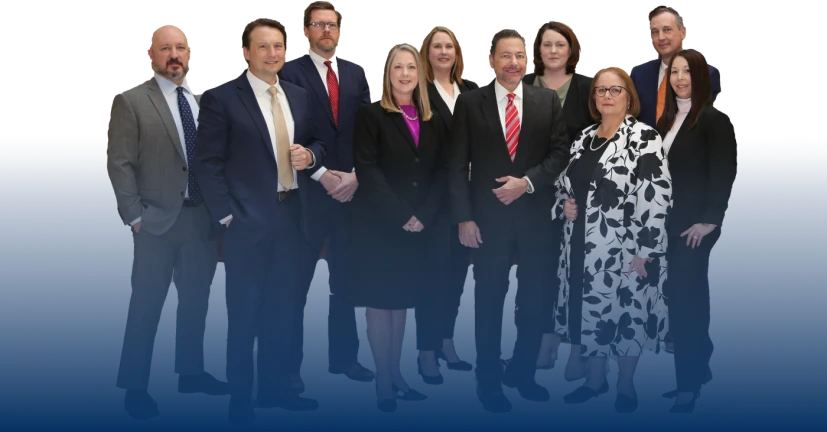Pure contributory negligence is a legal doctrine that prevents you from recovering any compensation if you contributed to your accident in any way. This rule applies even if the other party was 99% at fault for the accident. North Carolina is one of only four states still following this strict rule.
Insurance companies often try to use this law to their advantage by attempting to place even a small portion of the blame on you. They know that they won’t have to pay anything if they can prove you were even slightly at fault. This makes it essential to have proper legal representation.
If you want to understand how pure contributory negligence works in North Carolina, continue reading. If you’ve been blamed for an accident where you were injured in North Carolina, it’s time to speak to our Charlotte personal injury lawyers.
How does Pure Contributory Negligence Affect Your Claim?
When you file a personal injury claim in North Carolina, the insurance company will investigate whether you contributed to the accident in any way.
They may look at factors such as your speed, attention to surroundings, or compliance with traffic laws. Any evidence of contribution to the accident could bar your recovery.
Insurance adjusters are trained to look for ways to prove you were partially at fault. They might ask leading questions or try to get you to make statements that suggest you share some responsibility. This is why you shouldn’t speak with opposing insurance companies without legal representation in this state.
The burden of proving pure contributory negligence falls on the defendant or their insurance company. However, they only need to show that you were partially responsible, no matter how small that portion might be. It’s up to you to fight against these allegations with the help of a lawyer.
For a free legal consultation, call (877) 333-1000
What Are Common Examples of Pure Contributory Negligence?
In car accidents, pure contributory negligence in North Carolina might include driving slightly over the speed limit when another driver runs a red light. Even if the other driver was primarily at fault, your speeding could prevent you from recovering compensation.
In slip-and-fall cases, wearing inappropriate footwear or being distracted by your phone could be considered pure contributory negligence. Property owners might use these factors to argue that you partially caused your injury.
You need experienced legal representation who understands how to counter negligence arguments. Our lawyers know how to protect your rights and fight against unfair blame. With how pure contributory negligence works in North Carolina, you must appear faultless to win your case.
How does the Last Clear Chance Doctrine Work?
The last clear chance doctrine provides an important escape from the harsh effects of pure contributory negligence. This doctrine allows you to recover compensation if you can prove the other party had the final opportunity to prevent the accident. Your partial fault becomes less relevant if the other party could have avoided harming you but failed to do so.
You must prove several key elements to use the last clear chance doctrine successfully. First, you must show that you were in a position of danger that you could not escape. Second, you must demonstrate that the other party knew or should have known about your dangerous position and could avoid the accident.
When does Last Clear Chance Apply?
The last clear chance doctrine often applies in pedestrian and bicycle accident cases. For example, if a distracted pedestrian crosses against the light but a driver has time to stop, the driver may be liable under the last clear chance doctrine. The pedestrian’s negligence doesn’t bar recovery because the driver had the final opportunity to prevent the accident.
Similar situations can arise in car accidents when one driver makes a mistake, but the other driver has time and space to avoid a collision. The doctrine might apply if a driver could have switched lanes or stopped to prevent hitting another vehicle. These cases require careful analysis of timing and distances to prove the last clear chance existed.
Your actions leading up to the accident remain relevant, but if we can prove a last clear chance, they may not prevent recovery. Our lawyers know how to investigate these cases and gather the evidence needed to support your claim.
Click to contact our personal injury lawyers today
Are there Any Other Exceptions to Pure Contributory Negligence in North Carolina?
Children under certain ages are generally not held to the same pure contributory negligence standard as adults. The courts recognize that young children may not fully understand the consequences of their actions, and this exception helps protect the rights of injured children.
Gross negligence or willful and wanton conduct by the defendant may also override pure contributory negligence. If you can prove the other party’s actions were particularly reckless or intentional, you might still recover damages despite your own negligence.
Complete a Free Case Evaluation form now
How Can You Protect Your Rights Under Pure Contributory Negligence?
After an accident, avoid making statements that could be interpreted as accepting blame. Even saying “I’m sorry” could be used against you as an admission of fault. Document everything about the accident, including photos, witness statements, and your recollection of events.
Then, contact our office immediately before speaking with any insurance representatives. We can help protect your rights before the insurance adjusters try to get you to say something that could harm your chances of winning.
Contact DeMayo Law Offices Today if You’ve been Blamed for an Accident
Now that you know how pure contributory negligence works in North Carolina, it’s time to take action. At DeMayo Law Offices, we understand how to navigate these complex legal rules and protect your rights.
Your North Carolina Law Firm™ is ready to help you understand your legal options and fight for the justice you deserve. Contact our team today for a free case evaluation. You don’t pay anything unless we win your case.
Call or text (877) 333-1000 or complete a Free Case Evaluation form





